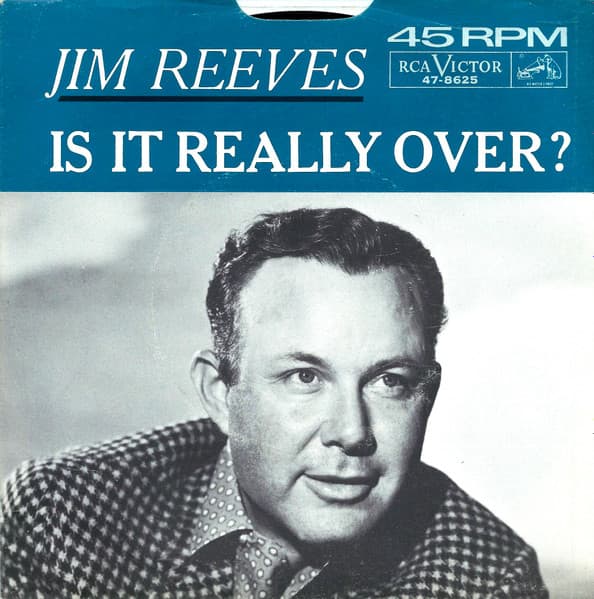
The Echo of a Farewell: An Immortal Question Lingering on the Line
A poignant reflection on the painful moment a man must face the definitive end of a cherished relationship.
There are voices in music that transcend time, not through sheer volume or flamboyant artistry, but through a gentle, yet utterly devastating sincerity. The voice of Gentleman Jim Reeves is perhaps the most enduring example of this phenomenon in country and pop music history. And few songs encapsulate his ability to convey profound sorrow with such quiet dignity as “Is It Really Over?”
Released in June 1965 on the RCA label, “Is It Really Over?” arrived almost a year after the tragic plane crash in July 1964 that took Jim Reeves‘ life. It became his third posthumous release to claim the number one spot on the charts, a testament to the enduring love the public held for his smooth, honeyed baritone and the Nashville Sound he helped define. The single reigned atop the U.S. Billboard Hot Country Singles chart for three weeks, spending a total of nineteen weeks charting. It also demonstrated the song’s broader crossover appeal, peaking at number ten on the U.S. Billboard Easy Listening Singles chart and number seventy-nine on the general Hot 100. This sustained success after his death only deepened the mythology surrounding the Texan balladeer.
The story behind the song is steeped in the melancholy reality of Reeves’ passing. “Is It Really Over?” was one of the magnificent, emotionally charged ballads recorded during Jim Reeves‘ very last recording session for RCA Victor. This session, held shortly before his death, also yielded other classics like “Missing You” and “Make the World Go Away,” which were also released posthumously. The song was written by Jim Reeves himself, and like so many of his best-known tracks, it was produced by the legendary Chet Atkins, a partnership that perfected the lush, polished “Countrypolitan” style.
The meaning woven into the simple, direct lyrics is one of universal heartache: the moment of forced acceptance. The narrator is clinging to the final, frail thread of a relationship, perhaps over the telephone—a common theme in his classics like “He’ll Have to Go.” There’s a desperate plea in the central question, “Is it really over, is this the end of the line? Don’t tell me I’m losing the only love that was mine,” that resonates deeply with anyone who has ever stood at the precipice of loss. It’s a moment of denial giving way to the horrible dawning of truth, the realization that despite all the memories and shared history, the chapter is definitively closed.
For those of us who remember when this song first graced the airwaves, hearing that gentle, familiar voice, still so warm and near, just months after the news of his death, was a profound experience. It was as if Jim Reeves himself had left a final, wistful message on the turntable—a soft-spoken farewell echoing from beyond. The song appeared on the 1966 posthumous album, Distant Drums, and it maintains that quiet, devastating power. The beautiful simplicity of the arrangement, the gentle piano, the understated strings, and the hushed background vocals of the Anita Kerr Singers create a perfect aural tapestry for his distinct, velvet-smooth baritone. The song doesn’t rage or rail; it simply asks, with an unbearable gentleness, if all that was good has truly vanished. And in the silence that follows, the answer is devastatingly clear. It’s a piece of music that feels less like a song and more like a whispered memory, preserved perfectly for generations to feel.